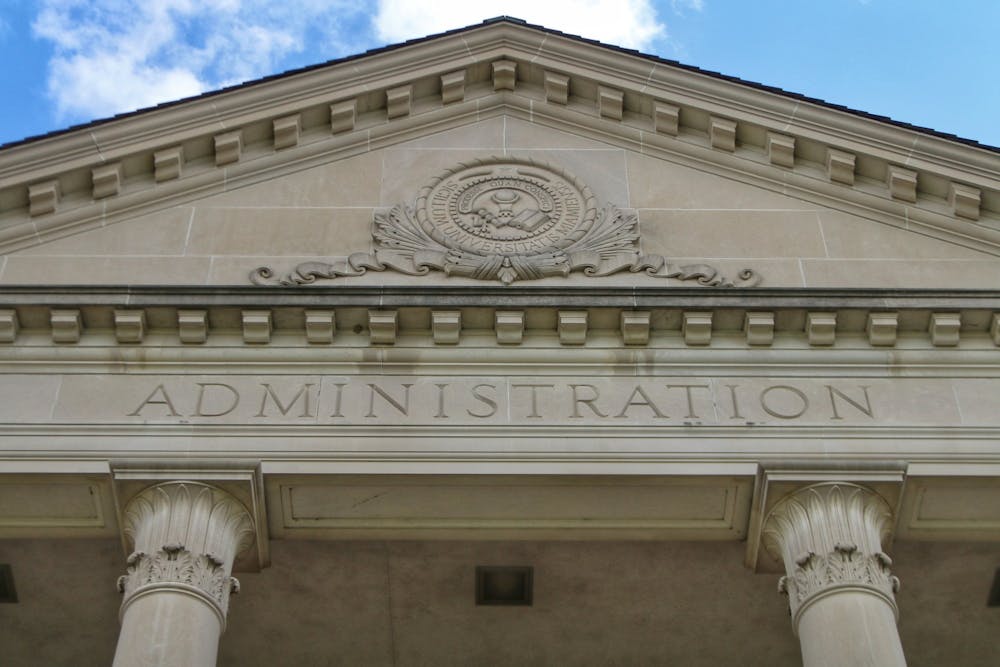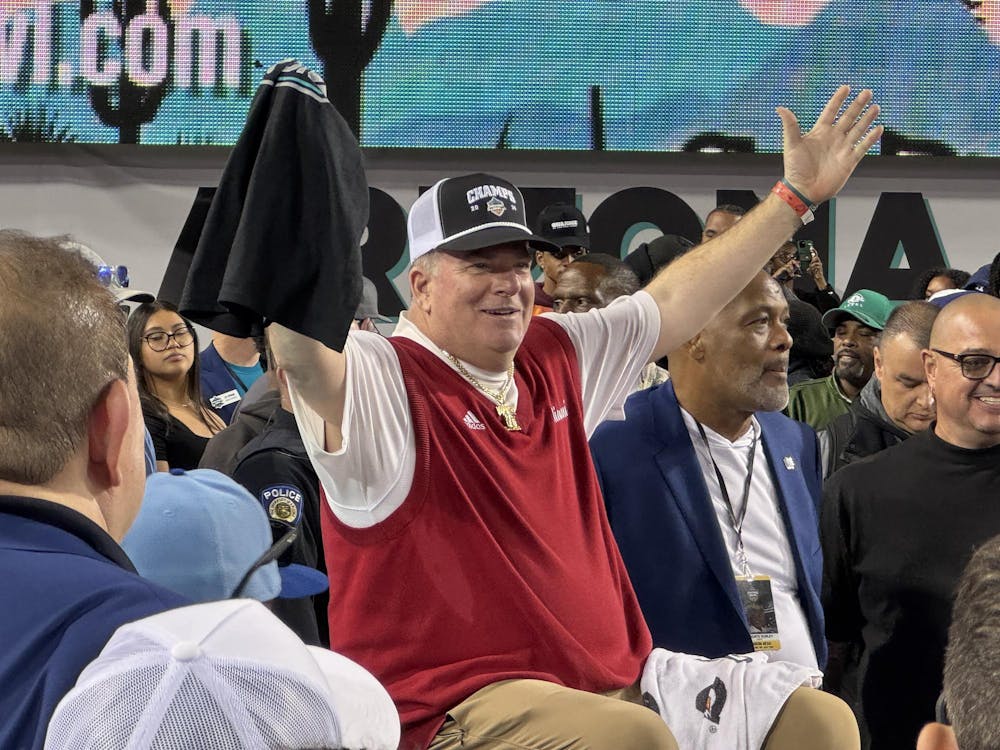The President’s Diversity, Equity and Inclusion (DEI) task force publicly released its recommendations to President Greg Crawford and the Miami community on Sept. 3.
The 43 recommendations, which were privately presented to the president and his executive committee on Aug. 14, are categorized into five pillars: dialogue and allyship, cultural consciousness, advocacy and partnerships, structural and resource support, and inclusion and accountability.
Examples of recommendations include hiring a Title VI coordinator to handle cases of racial discrimination, establishing a dedicated Center for Justice, Advocacy and Community Engagement (JACE) to streamline DEI efforts on campus, and revising the intercultural perspectives aspect of the Global Miami Plan to require coursework on cultural consciousness and anti-racism.
Each recommendation includes the task force’s rationale, an accountable party, a timeline for implementation and an assessment mechanism. Some also include potential consequences for enacting certain recommendations.
Many of these consequences are simply that implementing the recommendations would require increased expenditures and human resources, but others are more specific. For example, one recommendation is to hire permanent faculty specializing in DEI-related subjects, which carries the potential consequence of these faculty being discriminated against due to their race, level of ability or sexual orientation.
Now that the recommendations have been finalized, the task force will transition into an implementation group that will begin putting them into place.
Vicka Bell-Robinson, director of residence life and co-chair of the task force, said the new group will assist various entities on campus with carrying out the recommendations. However, she said it will ultimately be the accountable party’s responsibility to achieve the goals of the recommendations.
“The implementation group is going to talk with the accountable party and say ‘this is what we think and why,’ and then the accountable party has the responsibility for operationalizing that recommendation,” Bell-Robinson said. “Then, the implementation group backs away, and [the recommendation] is sitting within the infrastructure of the university where it needs to be.”
In July, the task force was the subject of controversy, when 15 student members resigned from the group. The students’ resignation letter cites disorganization, insensitivity and a lack of focus on vital issues as reasons they left the group.
Vada Stephens, a junior professional writing and music performance major, said he resigned from the task force because he didn’t feel the group was committed to making tangible changes.
“I felt the task force was performative in that it became a talking point for Miami rather than seeking to make adequate change,” Stephens said. “We’ve had a thousand task forces, coalitions and teams in the past that have attempted to do the work that this task force has been charged with doing.”
Victoria Cater, a senior international studies and East Asian languages and culture major, who also resigned from the group, said the task force largely ignored the issues the students were hoping to address, such as the Douglas Brooks incident and the Dear Miami Instagram page.
Enjoy what you're reading?
Signup for our newsletter
“It seemed like many of the recommendations that were laid on the table had already been in the works for the past year,” Cater said. “They wanted to talk about these things because they were safe, but they weren’t things that students currently wanted.”
Cater and Stephens also said the students asked to form a subcommittee specifically for student members of the task force, but their request was denied.
Anthony James, associate professor of family science and social work and co-chair of the task force, said this suggestion was rejected because he felt it would create a divide between the students and faculty in the group.
“We didn’t think [creating a subcommittee for students] was the best idea because it may have siloed things and pushed them out,” James said. “We tried to create a process that allowed all voices to be heard, but it just didn’t work out.”
Student Body President Jannie Kamara, who also resigned from the task force, said she and the rest of the students have been working on a number of projects, including increasing collaboration between different DEI-related organizations on campus and implementing the task force’s recommendations in student organizations.
Kamara also said mending the relationship between the students and administration will be a priority going forward.
“Trust was broken on both sides when we left [the task force],” Kamara said. “So the biggest thing we can do is rebuild that trust by meeting with administrators and doing more collaborative work.”
Stephens said the students have also begun working on their own set of recommendations to be submitted to administration to demonstrate their commitment to making a change on campus.
“We began work on creating a list of demands from the student perspective, so there are no excuses from the standpoint of, ‘The students quit. The students just gave up. The students didn’t wanna help,’” Stephens said. “No. We wanna change that narrative.”
Miami’s Division of Student Life has also formed a DEI action team, which students applied to serve on. This group will specifically focus on advancing diversity and inclusion within student life at Miami.
Dean of Students Kimberly Moore, who leads the action team, said this group is structured very differently from the task force – largely because the student members had to apply to serve on it rather than being appointed.
“We’ve flattened our structure, so there’s not a lot of hierarchy,” Moore said. “We have student representatives on every subcommittee, and it’s all about generating actionable steps together.”
Despite the students’ walkout, Bell-Robinson hopes the task force’s hard work will be recognized by the Miami community.
“There’s lots of folks with interests in this and wanting to see Miami University be a more diverse, equitable and inclusive place,” Bell-Robinson said. “Pretty thoughtful work went into this, and we’re hoping that speaks for itself.”




